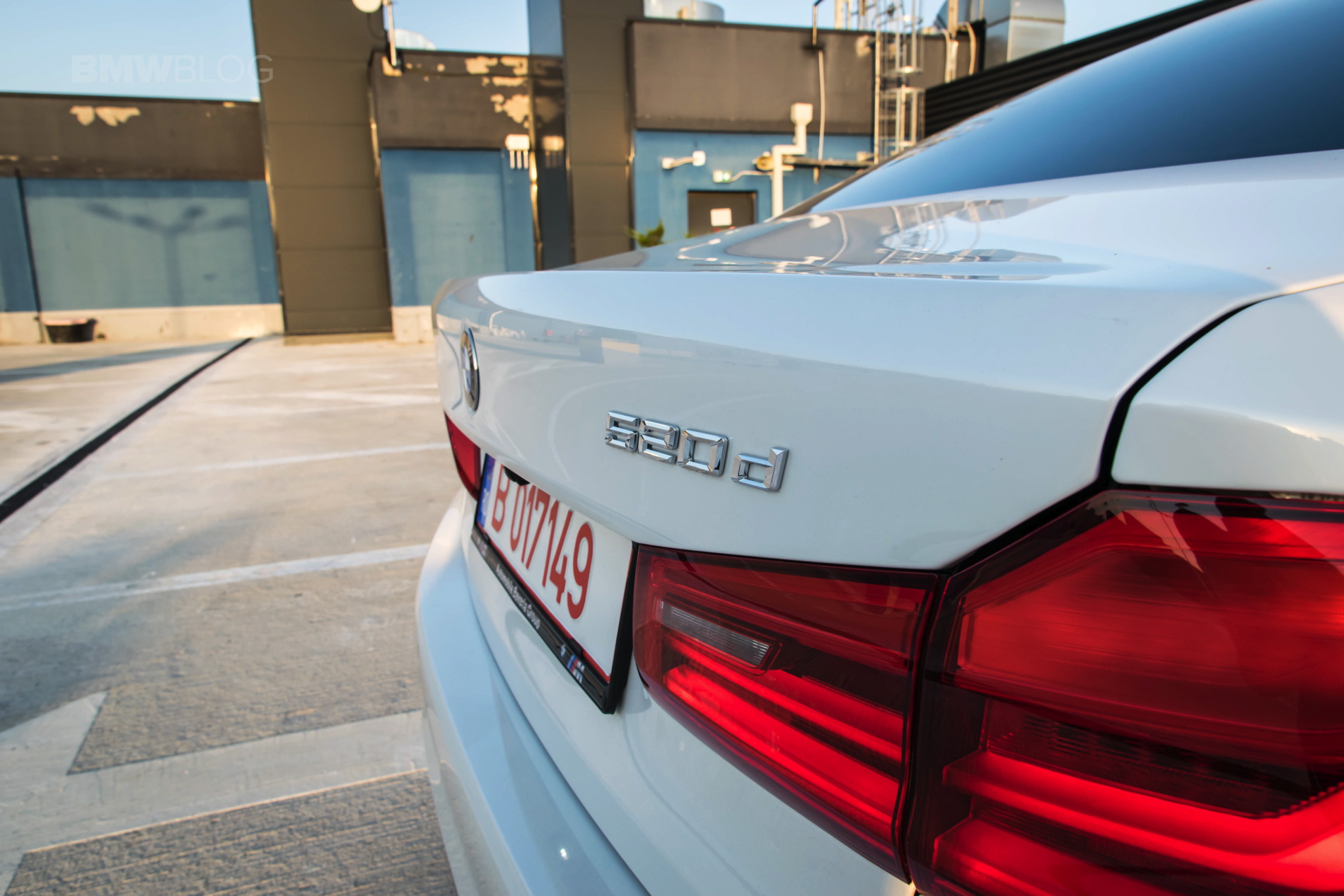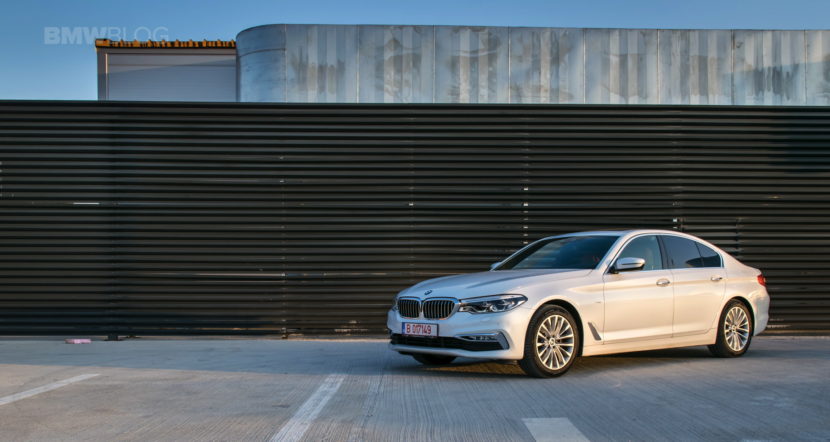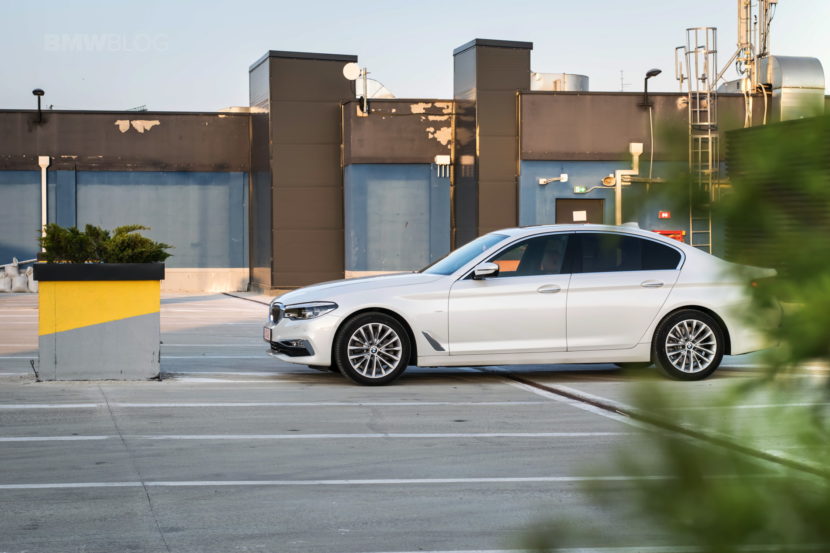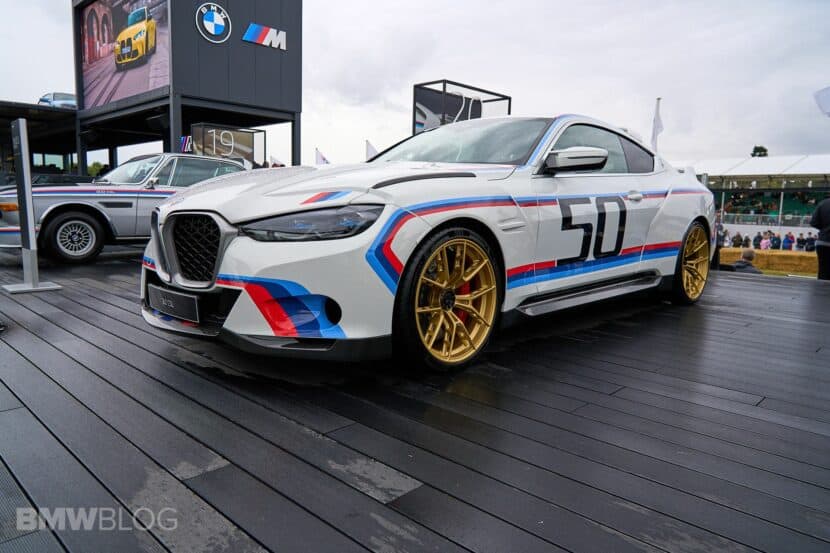BMW announced earlier this year that a few of their models will get mild-hybrid powertrains, starting with the 520d and 520d Touring. Back then though, the Germans were reticent to offer an exact fuel consumption figure that would show just how much more efficient these cars would be compared to their predecessors. Today, we finally get exact figures and they do fall a bit short of the claims made when the cars were announced.
When BMW told the world about the 520d and 520d Touring mild-hybrid models claimed the fuel consumption figures would go down by 0.3 l/100 km. Today, the results published show slightly different numbers. The model that is still in production (as the mild-hybrids will go on the production line next month) show an average fuel consumption around town of 5.3 to 5.1 l/100 km for the Touring and 5 l/100 km for the sedan. Outside the city limits those figures drop to 4.2-4 l/100 km for the sedan and 4.5-4.3 l/100 km for the Touring version.
On the new cars those numbers look slightly different. Inside the city, BMW claims a fuel consumption of 5.1-4.8 l/100 km covered for the Touring 520d and 4.8-4.6 l/100 km for the sedan. At the same time, outside the city limits, the Touring should return 4.2-4.1 l/100 km covered while the sedan should show 4-3.8 l/100 km. Of course, if those numbers seem extremely low for you, it’s because they are and you’ll probably never hit those claims.
Right now you must be thinking that drop in fuel consumption is so small it may not be worth the extra hassle but, in truth, there’s a different reason why BMW implemented mild-hybrid tech on these cars: CO2 emissions. That’s a big issue with a lot of carmakers in Europe, who are struggling to keep up with the demands of the EU in the field.
Looking at the spec sheet you might notice the mild-hybrids have considerably lower CO2 emissions. The BMW 520d sedan, for example, used to release 121-125 grams of CO2/km while the new version will make due with 108-112. Since the BMW 520d is a best-seller in Europe, dropping the CO2 emissions for these models will help BMW lower its fleet-average and allow it to stay within the limits set by the EU.







































































